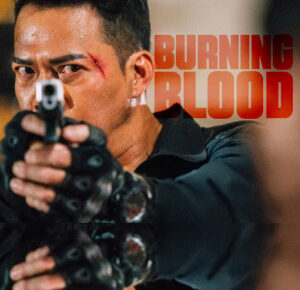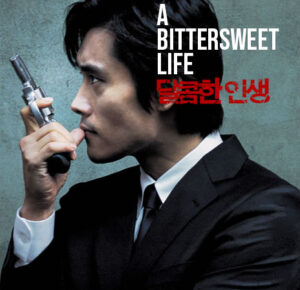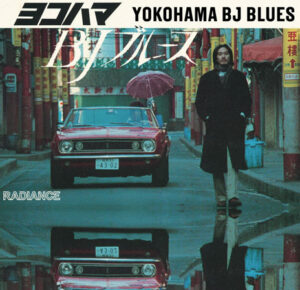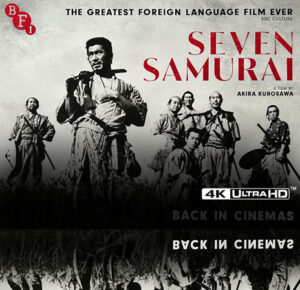
"A Better Tomorrow" Korean Theatrical Poster
Director: Song Hae-Seong
Cast: Joo Jin-Mo, Song Seung-Heon, Kim Gang-Woo, Jo Han-Seon, Kyeong-yeong Lee, Ji-yeong Kim, Hae-gon Kim, Hyeong-jun Lim, Tae-hwa Seo, Sin-seong Lee
Running Time: 124 min.
By HKFanatic
Considering Hong Kong cinema’s rich history, particularly during the New Wave of the 80’s and early 90’s, it’s surprising that producers haven’t indulged in more remakes. Then again, the Hong Kong film industry has changed so much during the last decade, any such endeavors would probably end up as remakes in name only. Actors have been replaced by pop stars, slow-motion and squibs traded for shakycam realism, and gritty Triad tales have fallen by the wayside in favor of CGI fantasy confections. I don’t think anybody wants to see Edison Chen and Nicholas Tse in a “Hard Boiled” remake directed by Gordon Chan. Thus, it falls to South Korea’s booming film industry to remake the 1986 John Woo movie “A Better Tomorrow.”
And what a risky proposition that is. “A Better Tomorrow” is, after all, the movie that put John Woo on the map, almost single-handedly created the heroic bloodshed genre, and turned Chow Yun Fat into the biggest star in Hong Kong. As a die-hard film buff, you have to wonder: just what could “Failan” and “Rikidozan” filmmaker Hae-sung Song add to this story that John Woo didn’t already make legendary? But with Woo onboard as producer, we must dismiss the notion that this is a mere cash-in on the “Better Tomorrow” brand name like Wong Jing’s 1994 “Return to a Better Tomorrow.”
In the interest of full disclosure, it’s been ages since I’ve seen the original film. I wanted to approach this remake with an open mind and judge it on its own merits. What I kept with me was my unshakable love for all things Woo – the slow motion, the doves, the blood-splurting bullet holes, the intense male friendships. As it turns out, the remake jettisons most of these elements. It is, instead, very much a modern Korean drama: handsomely produced, proficiently acted, but a bit overly long and cold in its approach. With his glossy style, Hae-sung Song keeps the audience at arm’s length and never truly involves us in the story.
Before I sat down to watch the film, I anticipated Woo-style operatic gun battles with slick Korean production values and a lot of pouting bad boys. I got the production values and the bad boys but not the slow-mo gun fu. The main focus here is drama, with plenty of over-the-top emoting and an almost homoerotic take on brotherly love. When we do get to the action, it’s delivered in a very unglamorous and matter-of-fact style, though it is still exciting to watch.
Once again, as in the work of director Dante Lam, we see the influence that Michael Mann has had on Asian action cinema during the last 7 years: the final shootout in this “A Better Tomorrow” arguably owes more to the climactic gun battle in Mann’s big screen “Miami Vice” picture than it does Woo’s original. The ending, with its grenade-launching pyrotechnics, is certainly the highlight of a film that could have benefited from a whole lot more action during its two hour runtime.
The actors are decent across the board, though it’s perhaps to be expected that Seung-heon Song comes nowhere close to the natural charisma and screen presence of 80’s Chow Yun Fat. His character is still pretty cool, though, with his brown trenchcoat and ridiculously over-sized sunglasses. The only time he falls flat is when he engages in some “What about me!”-style whining during crucial moments in the story.
Is “A Better Tomorrow” a bad movie? No, not at all. It looks and sounds great, and the actors do their job. Perhaps wisely, director Hae-sung Song sidesteps John Woo’s signature style altogether and delivers slick contemporary Korean melodrama instead. Granted, Woo’s films were always about melodrama too – but he tempered it with bloodshed and turned it into high art. This “Tomorrow” is probably best visited by fans of Korean blockbusters who haven’t seen Woo’s original. Some films are just untouchable.
HKFanatic’s Rating: 6/10
By Mighty Peking Man
“A Better Tomorrow” is one of the most influential movies to come out of Hong Kong. It put John Woo on the map as one of the greatest action film directors of our time. It also made Chow Yun-fat a superstar.
This brings us to the 2010 “A Better Tomorrow” remake by South Korean filmmaker Hae-sung Song (Failan). It’s a lavish joint production between South Korea, Japan and China. The project officially has John Woo’s blessing, since he – along with Terence Chang – served as an executive producer.
Before I checked out the remake, I wanted to watch John Woo’s original, which I haven’t seen for a good 10 years. However, I decided not to for a couple of reasons:
1) I wanted to avoid writing a review that would consist of nothing but a bunch of useless comparisons. What’s the fun in that? Besides, I wanted to get the most entertainment out of the remake that I possibly could.
2) I don’t own the original. How can a guy have 99% of Bruce Li’s films on DVD, yet not have a copy of “A Better Tomorrow.” Sad, but true.
Let me get one important fact out of the way before I get on with the review: The remake is not better than the original. I thought this before I even watched the remake.
I’m not a film snob who is totally against remakes. I actually don’t mind them at all. There are a lot of remakes that I prefer over the originals: “Vanilla Sky” (2001) was better than “Abre los ojos” (1997); “The Hills Have Eyes” (2006) was better than “The Hills Have Eyes” (1977); “The Ring” (2002) was better than “The Ring” (1998).
I wouldn’t be against the idea of anyone remaking “The Godfather,” one of my all-time favorites. Why? Because I’d be curious to see how it turned out, and whatever the outcome, at least I still have the original to go back to.
I have the same exact attitude towards the “A Better Tomorrow” remake:
Not that it should be a surprise to anyone, but the remake has the same exact plot outline as the original: Two brothers on opposite sides of the law; one’s a gangster (Joo Jin-Mo taking Ti Lung’s role), one’s a cop (Kim Gang-Woo taking Leslie Cheung’s role). Then there’s the second gangster (Song Seung-Heon taking Chow Yun-fat’s role), the unpredictable noble partner. Lastly, we have the innocent entry-level gangster (Jo Han-Seon taking over Waise Lee’s role), who turns out to be not-so innocent.
There are some drastic differences within the story. Some of the changes are clever, others are questionable; but at the risk of spoiling anything, I won’t get into any details. I must say, a couple of the changes did catch me off guard.
The overall movie is slick. It’s shot beautifully with high standards every step of the way. There’s lot of drama (which should be expected if you’ve seen the original), but when the action kicks in, the sequences are exciting, bloody and staged just right.
The performances are all good, but I have to give main props to Song Seung-Heon (Calla). Talk about having to fill some heavy shoes. In my opinion, he nearly succeeds in matching the charm and charisma that Chow yun-fat brought to the same role.
Towards the end, I grew a little sick of Kim Gang-Woo’s (Marine Boy) sobbing. They could have toned all that down a bit. Joo Jin-Mo’s (Musa) performance is basically a carbon copy of what Ti Lung gave us. Jo Han-Seon seemed to have the most fun and leeway, mostly due to his character’s change from the dork who opens doors for the higher up gangsters, to the ruthless villain he later becomes.
All in all, the remake is enjoyable and fun to watch. Most likely, I’ll never watch it again, but I’m sure I’ll watch the original many more times.
Mighty Peking Man’s Rating: 7/10
























Be the 1st to Comment